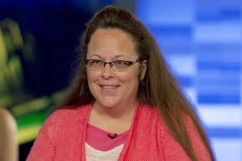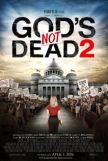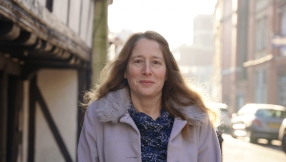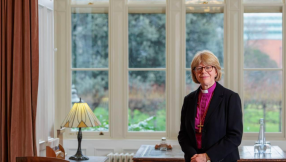It is "increasingly difficult" to hold rational conversations about important moral and social issues in today's American society, according to prominent New Testament scholar DA Carson.
In an editorial in the August edition of Themelios, published by The Gospel Coalition, Carson reflects on the case of Kim Davis, the Kentucky county clerk who served five days in prison after she refused to issue licences for same-sex marriages.
The Kim Davis saga was a test case for thinking through the "rising number of situations in many Western countries where the direction of our countries and their laws is away from the Judeo-Christian heritage with which we have traditionally comforted ourselves", Carson said. He continued: "These trajectories place Christians in a position where they must decide between going along with what they are convinced defies God and will bring judgment on the nation, and standing against these developments and paying the consequences."
In Davis' case, he said, she faced options including resigning – which might solve a personal problem but weaken the hands of those looking for a better solution – or resign and withdraw, as far as possible, from the political and cultural life of the nation, which would prevent her from being salt and light. The third option was to stay on the job and bear the consequences, which initially she did. In a comment implictly critical of Davis, Carson says: "It would have been useful to see how appeal to those pieces of legislation might have worked out in relief – but almost certainly Kim Davis would have spent more time in jail before matters were resolved. Instead, what started off as principle (whether you agree with it or not) quickly degenerated to political grandstanding."
However, Carson also draws attention to complications around Davis standing firm. It is inconsistent to object to marrying same-sex couples but not previously divorced couples, he says. Furthermore, a case involving a Muslim woman who refused to serve alcohol as a flight attendant was very similar, and "If we think that Kim Davis should be allowed some kind of accommodation on the grounds of her religious convictions, on what conceivable ground could we deny some kind of accommodation to Charee Stanley?"
Carson notes that Paul did not live in a democracy and had no expectation of changing the imperial order, but that democracy did not necessarily lead to righteous government. He says: "The three hundred million American citizens are three hundred million sinners. Why should we imagine that three hundred million sinners will always vote for righteousness? And because Western cultures generally are moving farther and farther away from the Judeo-Christian heritage that once nourished them, Christians can expect to suffer a measure of cultural and political isolation. The years ahead may witness the rise of many Kim Davises."
He concludes by arguing that because of "the tendency to empower victims, ensuring that victims are multiplying; second, the growing sense of entitlement among millennials; and third, the rise of the new tolerance that teaches us that this tolerance is the supreme good" it is "becoming increasingly difficult to hold rational conversations about the most important things".
Christians should expect "opprobrium, and worse" but must "try to speak the truth in love, to influence the culture in which God has placed us, and yet avoid the whining entitlement that surrounds us, while being entirely willing to suffer of Jesus's sake –indeed, committed to rejoicing for the privilege of suffering for his sake".
















